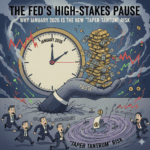The time of day is a critical factor in Forex trading, and it significantly influences market dynamics and trading opportunities. The Forex market operates 24 hours a day, five days a week, and it’s divided into distinct trading sessions based on major financial centers around the world. Here’s how the time of day impacts Forex trading:
Market Sessions
The Forex market is divided into four main trading sessions: the Sydney session, Tokyo session, London session, and New York session. Each session has its own unique characteristics and trading opportunities. Traders often focus on specific sessions that align with their time zones and trading strategies.
Volatility
Volatility tends to vary throughout the trading day. For example, the London and New York sessions overlap for a few hours, creating a period of high volatility when trading opportunities are more abundant. The Asian sessions are typically less volatile.
Liquidity
Liquidity is higher when multiple major sessions overlap. High liquidity is advantageous because it allows for easy order execution without significantly impacting currency prices. Traders often prefer trading during periods of high liquidity.
Currency Pairs
The choice of currency pairs can also depend on the time of day. For instance, traders may focus on the EUR/USD pair during the overlap of the London and New York sessions, as it’s one of the most actively traded pairs.
News and Events
Economic announcements, central bank meetings, and geopolitical events are often scheduled for specific times of the day. Traders pay close attention to these events and adjust their trading strategies accordingly.
Trading Styles
The time of day may align with a trader’s preferred style. Day traders, for example, often focus on short-term intraday moves and may trade during high volatility periods, while swing traders may analyze longer-term trends and trade less frequently.
Personal Schedule
Individual traders’ schedules and time zones also play a significant role in determining when they trade. Traders choose the hours that are most convenient and compatible with their daily routines.















